Generative AI is the transformative technology of the moment. Tools like ChatGPT are helping people realize the power of AI by automating tasks such as writing and proofreading text, creating images and videos, and even solving complex problems–or, at least, providing insight toward solving a problem.
AI is also changing another routine task: browsing the web. Companies like Opera and Perplexity have been working on AI-based tools called agentic browsers. Agentic browsers are capable of understanding the content of a web page in real time and also using AI to interact with the page and run workflows for you.
Agentic browsers promise to change the way people interact with the web. Instead of having to worry about finding things on your own, agentic browsers take control of everything so you can focus on other tasks. The promise sounds too good to be true, but do these browsers work in real life?
I’m a long-time Safari user. It’s not the best web browser in the world, but it’s undeniably the one that has the nicest integration with Apple platforms. While Apple has been struggling to deliver AI capabilities, I dove into testing two different agentic browsers to find out if they’re really game changers and if they can convince me to switch.
Opera Neon and Perplexity Comet: Two agentic browsers
I was invited to try out two different agentic browsers: Opera Neon and Perplexity Comet. Both are currently available in a very limited beta.
When you think of a web browser, there’s usually a common interface that comes to mind. At first glance, both Opera Neon and Perplexity Comet look like something you’d expect from a browser, but with a touch of an AI assistant. Both have a ChatGPT-like interface where users can ask anything.
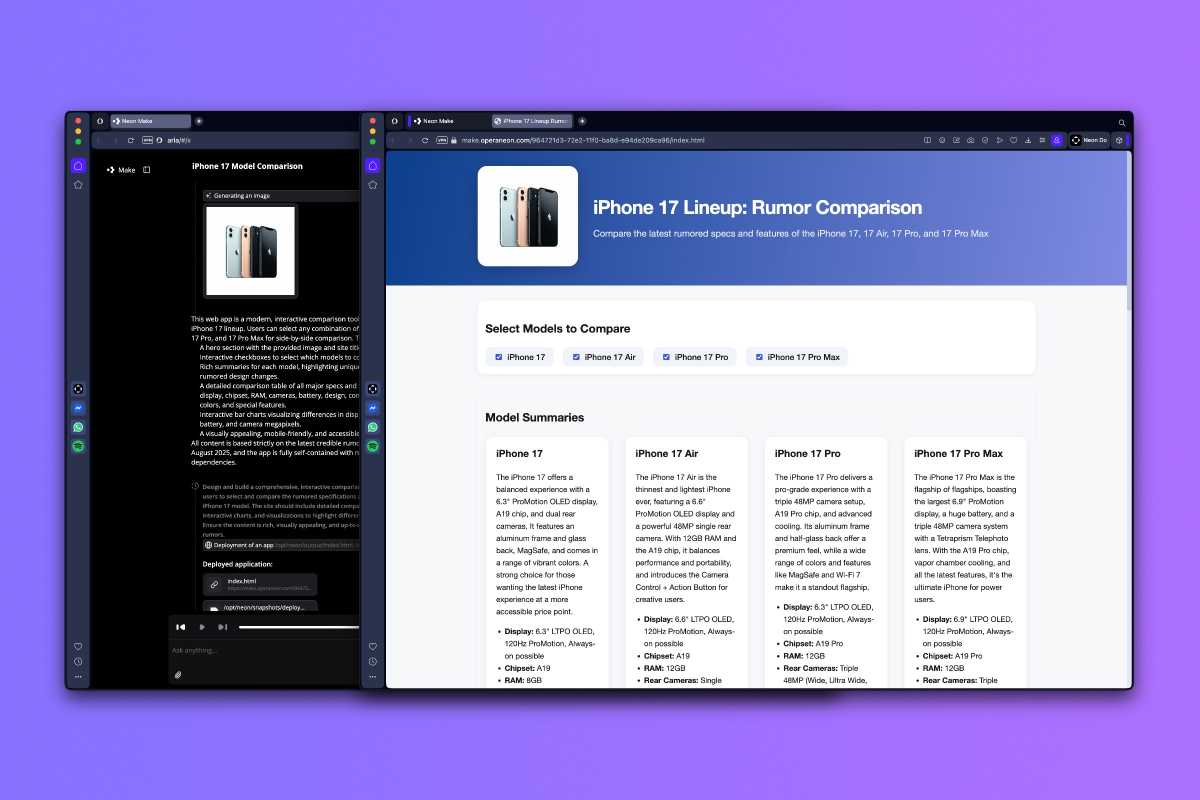
Foundry
Here’s where they differ. Instead of searching on a conventional search engine like Google or DuckDuckGo, these browsers use their own AI chatbot to answer your questions, so you don’t have to go to websites to find something.
Instead of navigating to Google or a website to start your browsing session, you ask the AI agent a question. It’s not a button like Copilot in Microsoft Edge—the browser is completely built around interacting with the AI engine to conduct searches, fill out forms, book trips, and create web apps.
Opera Neon and Perplexity Comet: What it’s like to use them
To see what each browser responds to a query, I asked both browsers for the “latest iPhone 17 rumors.” Opera Neon generated a text about the main rumors, while Perplexity Comet went a bit further and combined both AI results with some links to articles on the web about what I asked.
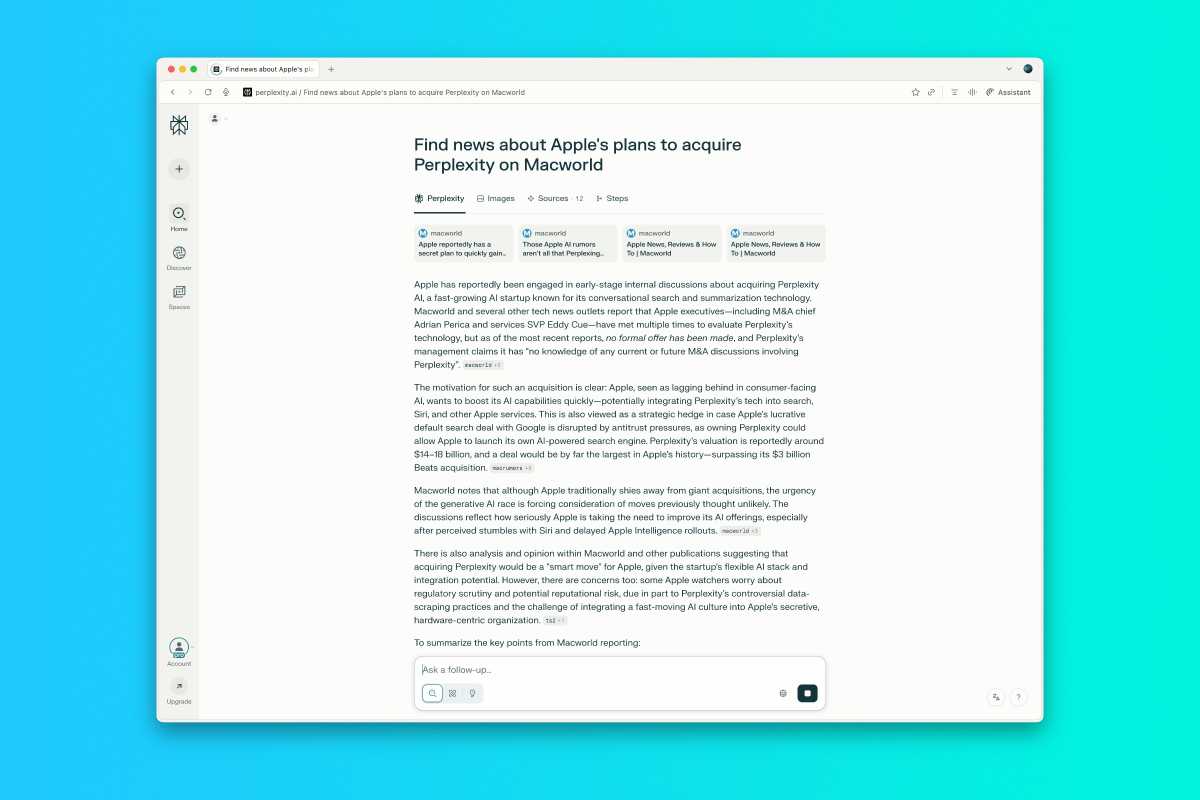
Foundry
However, there’s a lot more you can do with these browsers than just ask questions. Imagine, for example, that you need to buy flight tickets, but you’re not in the mood to open the airline’s website and find the flights on your own. An agentic browser can take care of that.
I asked both Perplexity Comet and Opera Neon to book tickets for a specific route in September. I made it clear that I wanted the cheapest tickets possible. They both opened the airline’s website and selected the cheapest fare. Impressive, although Perplexity Comet didn’t proceed to checkout until I gave it another command; Opera Neon did.
Opera Neon can also generate webpages and mini web apps for you. I asked it to make a page comparing all the rumored iPhone 17 models, and it built one in less than five minutes.
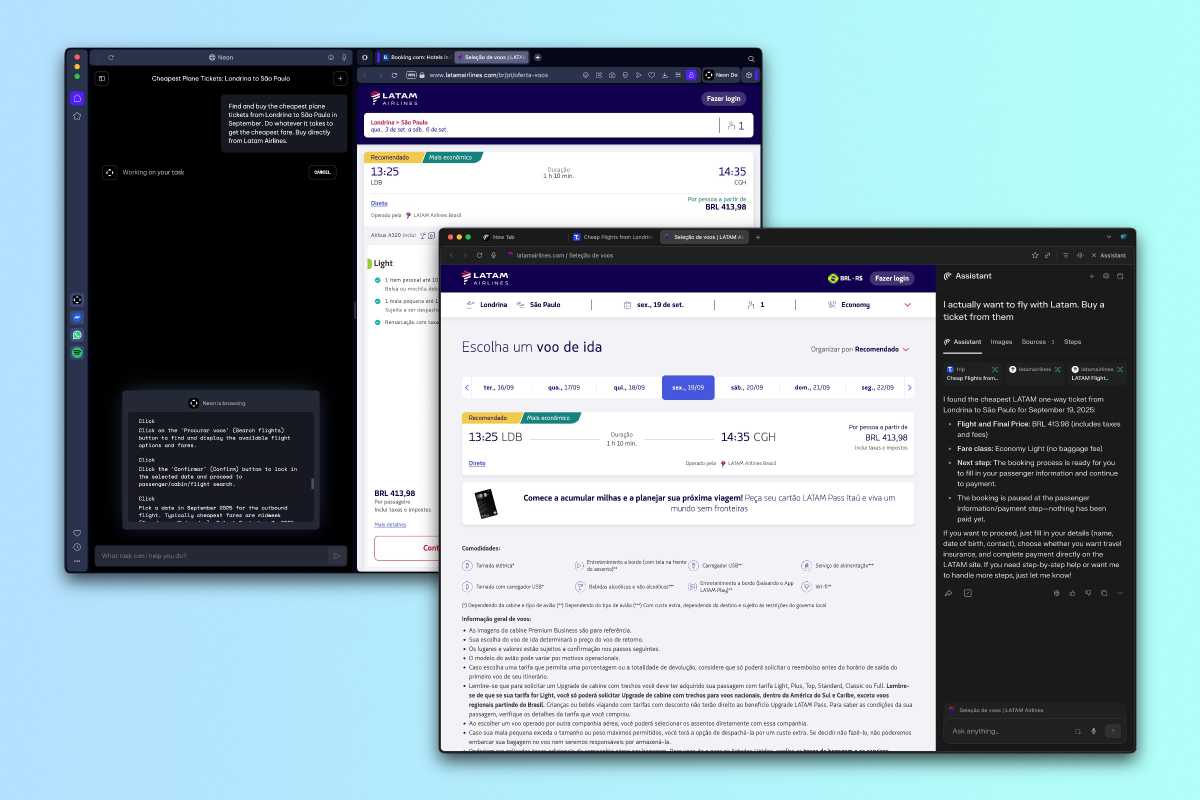
Agentic browsers can be used to automate mundane online tasks, such as booking a flight.
Foundry
One thing I’ve learned from these AI-based browsers is that you can get better results by being incredibly specific. When want them to buy something with Safari, for example, you can type exactly what product or service you want (iPhone 16 Pro Max) to closer to what you want,rather than typing, “I want to buy a new iPhone.”
It’s a little different when using AI agents. When I asked the browser to find me a hotel in São Paulo, Brazil, that’s what it did. But when I asked it to “book me a good hotel in São Paulo for September 17-18 and make sure you find hotels around the Jardins neighbourhood”, it took me straight to the checkout page based on what I requested.
Is booking a ticket on your own still faster? Probably. Both AI browsers took several minutes to complete the most complex tasks, during which time I could have searched on my own. But again, the main point is to let the computer do the hard work for you while you do something else. This is probably one of the best showcases of the usefulness of AI in our lives.
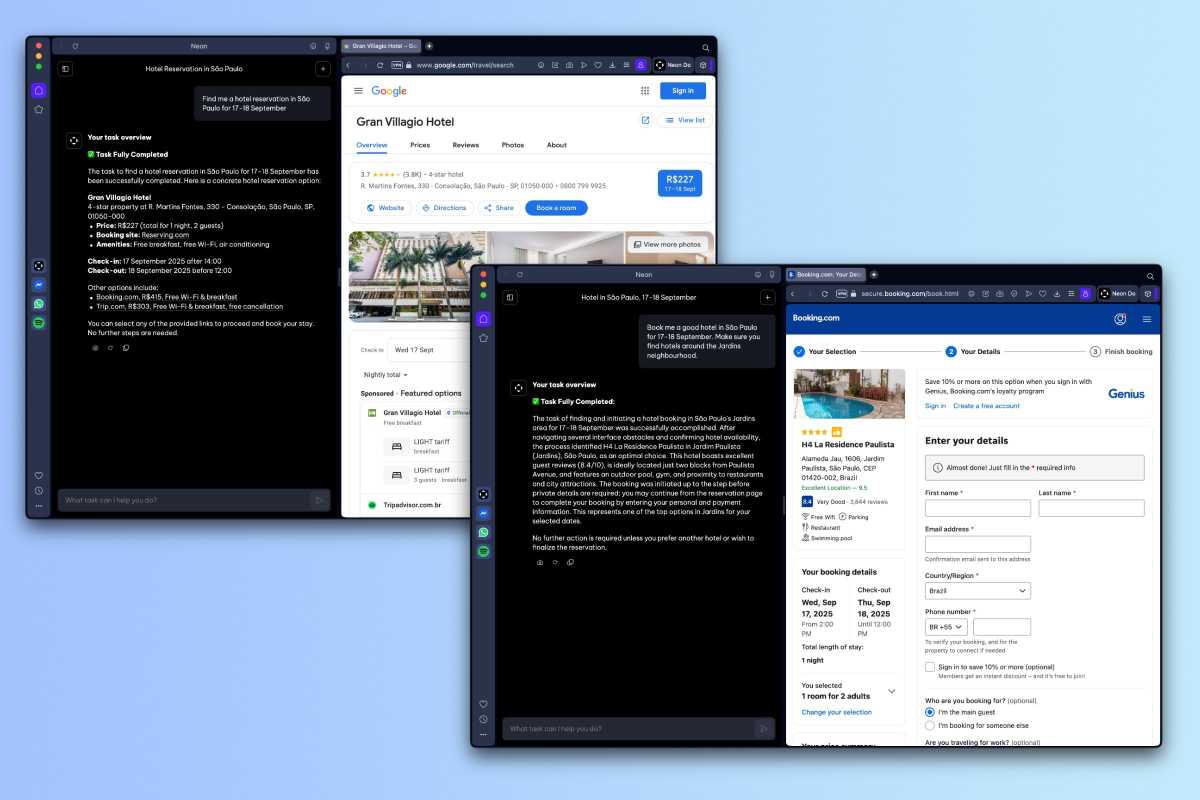
If you add specifics to your request, the AI agent will be better able to meet your demands.
Foundry
Where does Apple stand?
Compared to companies like Opera and Perplexity, Apple is noticeably behind when it comes to fully agentic AI experiences. While macOS 26 and iOS 26 bring improvements to Apple Intelligence, the features announced thus far are more limited than what agentic browsers are already capable of.
Unlike Perplexity Comet or Opera Neon, Safari hasn’t integrated any agentic capabilities (at least not yet). Apple Intelligence focuses on personal context with things like rewriting emails and summarizing notifications. It’s an impressive first step, especially given Apple’s emphasis on privacy and on-device processing. But Apple Intelligence, for now, isn’t really trying to change how you use the web.
Right now, I still feel more comfortable using the web the traditional way, but it’s undeniable that having a browser that does things for me sounds quite appealing in certain situations, and I’d love to see Apple working on something similar.
That might happen. Reports suggest that Apple has internally discussed the idea of acquiring Perplexity, the startup behind the Comet browser. Valued at around $14 billion, Perplexity could help Apple catch up in the AI race, especially in areas like web search and agentic browsing, where Safari still lags.
It’s unclear whether Apple will go ahead with its acquisition plans, but with the billion-dollar deal between Apple and Google under threat due to antitrust laws, the company would have a good reason to invest in its own AI-powered browser and search engine.
The future of web browsing
Agentic browsers like Opera Neon and Perplexity Comet are not perfect and often painfully slow, but they offer a glimpse of what the future of web browsing looks like. While I’m not ready to give up Safari just yet, I can see the appeal of letting an AI assistant do the boring stuff. As the technology evolves and gets quicker, I can see it replacing Safari for some tasks, especially if Apple doesn’t make an effort to catch up.
Whether Apple builds something like this itself or ends up acquiring a company like Perplexity, it’s clear that the web as we know it is going through a major transformation. And this time, AI isn’t just enhancing the browser. It’s becoming the browser.

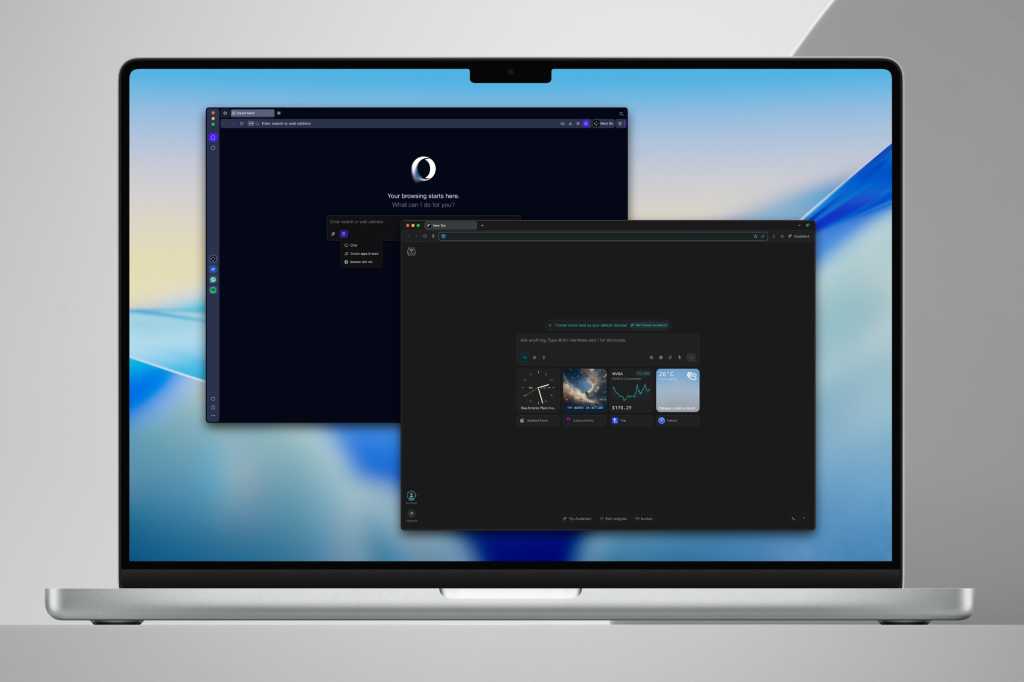


Average Rating